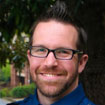In a recent New York Times article, Michael Winerip shares some lessons learned from the ravenous fires of 1988 that consumed nearly one third of Yellowstone National Park. Winerip points to a difficult decision regarding forest fires, writing, “If some fires aren’t permitted to burn in the wild, dry tinder builds on the forest floors, threatening damage on a much larger scale when there is a blaze. But if a forest fire goes uncontained for too long, it may grow beyond human control.”
The article goes on to report that park superintendents decided against containing the fire at its early stages, relying on computer models that advocated a laissez-faire approach to seasonal forest fires in order to renew the forest. Unfortunately, by July of that year the fires had swelled beyond human efforts to halt them, and it was not until snow began to fall on September 11, 1988 that the fire abated. This devastating fire has made park superintendents wary of letting new fires follow their natural course for fear of unleashing a similar firestorm.
Fires are regular features of nature — as another recent Yellowstone fire attests — and they are necessary for the survival of a forest as coniferous trees depend upon fire to heat their cones to bursting, thus spreading seeds for the next generation of trees. However, with rapid deforestation by developers, fires can no longer be left to burn themselves out without seriously jeopardizing the lives of nearby inhabitants. One might go so far as to say that human advancement threatens the livelihood of a forest’s primary means of regeneration.
What, you may be wondering, does this have to do with preaching?
I would argue that preaching faces a crisis akin to that of our national forests in North America: we are so scared that the purging fires will threaten our all-too-human “developments” that we douse fires before they can really begin to blaze. What preaching requires is a hearty conflagration strong enough to launch the seeds of homiletical regeneration so that new crops may take root.
John McClure, Charles G. Finney professor of preaching and worship at Vanderbilt Divinity School, is correct in his assessment that preachers must “rethink what it means to speak sacred words in a world that is experiencing the weakening of all of it metanarratives (even the metanarrative of living beyond all metanarratives).”1 In particular, preaching requires a renewed imagination at the point at which theology and culture intersect with sermon-related discourse. We might think of culture as a fire that clears away the “dry tinder” that has built up on the floor of our ecclesial forests; it consumes the deadwood for the sake of the forest.
If we are to preserve the homiletical forest vis-à-vis the current cultural realities facing the North American church, we as preachers must begin to question the philosophical presuppositions that fund our words about God amidst the globalized, post-Christendom situation in the West. Many preaching books fail to sufficiently equip preachers to encounter the theological tradition at this point of transition because they treat only the surface features that cultural transitions manifest — they treat the fire unaware of its importance for the health of the homiletical forest. Such an approach fails because it is incapable of engaging the problem at a more fundamental level.
Today’s preachers face a struggle similar to that of forest rangers: How do we decide how much of the (homiletical) forest needs to be left free to burn and when do we decide the point at which human intervention is necessary?
The task for contemporary preachers and teachers of preaching is to hold these concerns in tension so that we do not allow the fires to burn indefinitely, while also allowing the purging function of culture to have its way with our neatly ordered homiletical forests. This is not an easy tension to live with, and preachers would do well to consider books by contemporary homileticians who are struggling with preaching along these lines, especially:
- John McClure’s Mashup Religion: Pop Music and Theological Invention (Baylor, 2011)
- Eunjoo Kim’s Preaching in an Age of Globalization (WJK, 2010)
- Luke Powery’s Dem Dry Bones: Preaching, Death, and Hope (Fortress, 2011)
- Thomas Long’s Preaching From Memory to Hope (WJK, 2009)
